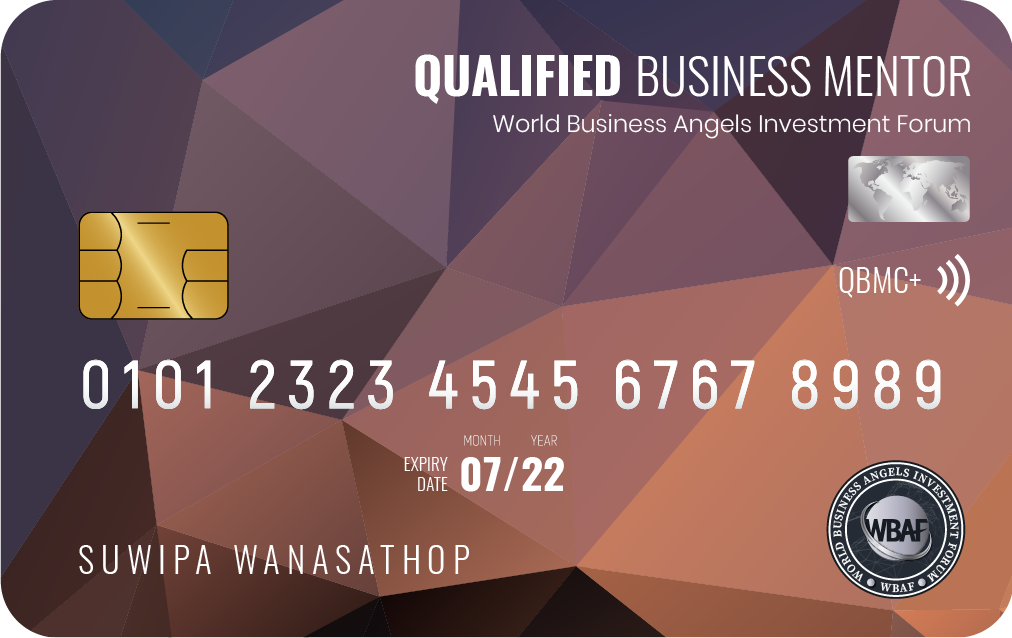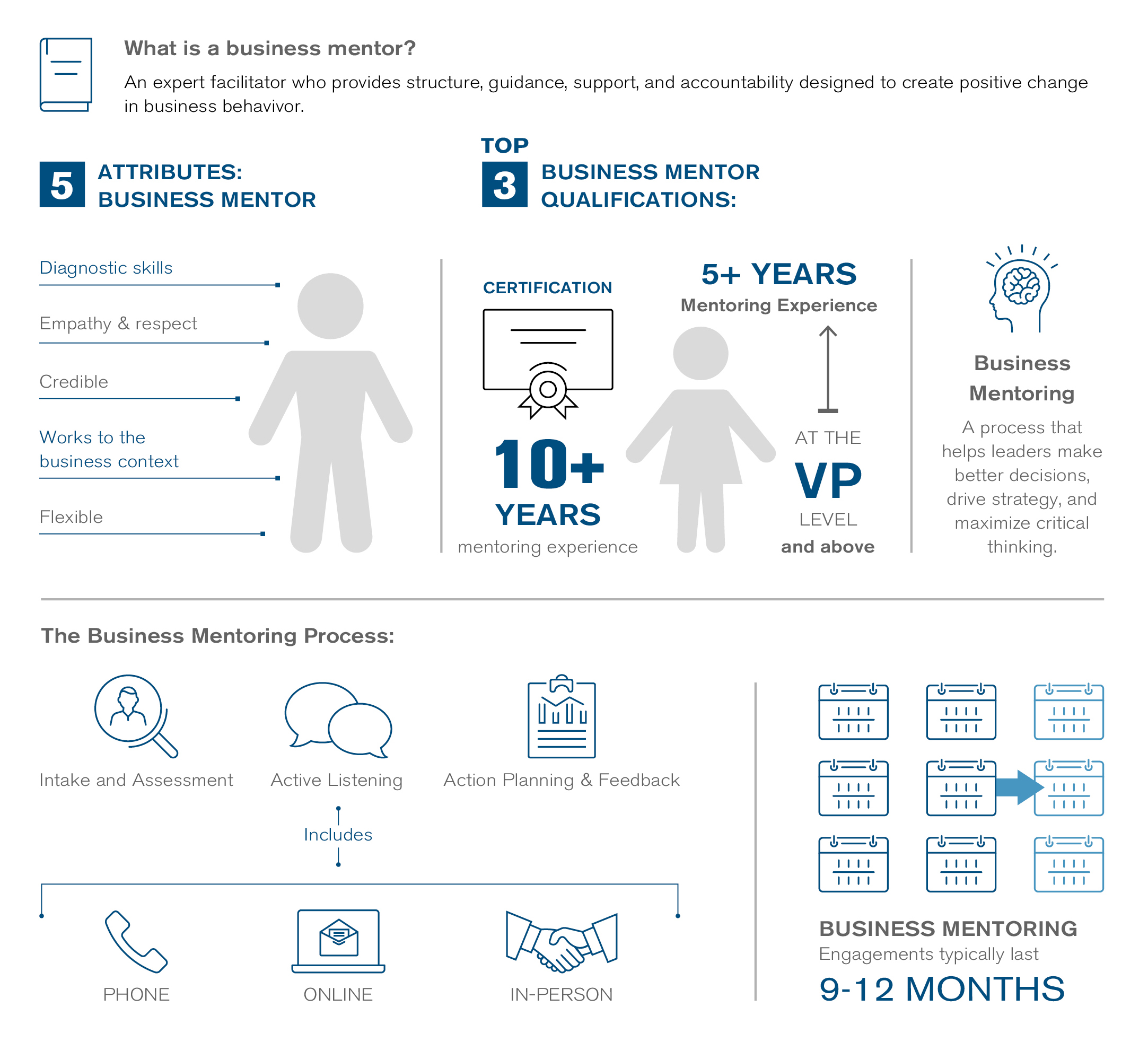

2 February 2022
14 Hours + Proficiency Test
€ 2450
Mentor, coach, consultant, advisor, role model, supporter, guide ... All act in the capacity of strategic advisor, but there is often confusion about how their roles differ and about the relationship they signify. Mentors are seen as guides who offer their wisdom to a mentee; a coach helps someone achieve specific goals in a well- defined context, and consultants work on bringing solutions to specific problems.
Mentoring has been shown to help improve performance, enhance confidence, add motivation and perspective, and develop problem-solving skills, all of which give mentees an overall boost in their professional life and their personal life as well.
Being a great mentor requires a specific skill set; without this skill set, mentoring relationships are likely to fail. Almost anyone can become a better mentor with good training, however. The most successful mentoring relationships are formed when mentor and mentee expectations are aligned, and when each person has the tools to maximize the mentoring opportunity.
Because the skills for mentoring, coaching, and consulting are so similar, the lessons in this course apply to all three.
By the end of this programme, you will be equipped with the skills to be an influential business mentor to individuals and teams from different cultures and backgrounds, and you will be certified by WBAF as a Qualified Business Mentor.
The programme is designed for current advisors/mentors/coaches/consultants and for managers and top- level executives with strategic decision-making responsibilities. You’ll focus on the global business ecosystem and ways to provide strategic advisory services and guidance in the workplace.

The WBAF Business School provides a hybrid learning experience in a multilingual and multi-cultural environment offering (a) online education (b) support from an individualized strategic advisory board, (c) stock exchange meetups and inter-continental study trips, (d) support from a corporate governance and SME support center and (e) proficiency-based qualification and certification.
In this first module, you will be guided through the world of global business and entrepreneurship. You will be introduced to the global business ecosystem and the different notions of startup, scaleup, business angel investment, venture capital, corporate capital, incubator, accelerator, and university technology transfer offices. This module will also include descriptions of how various stakeholders work together, and you will learn where you will be able to play a role. Finally, examples of thriving business and entrepreneurship ecosystems will be presented, and you will learn why some places work better than others.
In this module, you will learn why strategic advisories are needed and how to start a strategic advisory mission. The various challenges faced by businesses and leaders will first be explained. This will be followed by a presentation of the different roles a strategic advisor can play and a description in concrete terms of how you can help the business to grow and the executive leaders to get better. At the end of this module, you will understand the difference between being a mentor, a coach and a consultant, the role of each, and how they usually work (relationship, duration, …). Finally, best practices and pitfalls will be pointed out to ensure that you are prepared for success in your new role as a strategic advisor.
The third module is designed to help you gain a clear understanding of how to engage in a strategic advisory mission. You must first define the goals and objectives of the mission — the desired outcomes. It is also important to understand what makes a good mentee, coachee or consultee as well as a good mentor, coach or consultant. In instances where a mentoring relationship fails, it is most often because the mentors and mentees are not well matched or because goals are not aligned, so this module will offer tips for avoiding mistakes in that critical area. You will also learn how to create the right environment for your mentoring sessions, whether these are physical or virtual. This module also includes recommendations for giving constructive feedback, which contributes to a healthy relationship. Finally, to ensure that you are well prepared to take on your new role, the lecturer will advise you on important do’s and don’ts. You will then have a chance to practice your skills as a mentor, coach or consultant in a role-play activity.
A successful strategic advisor should aim at developing people, both professionally and personally. In module 4, you will learn how to help your mentees, coachees or consultees formulate their goals, develop a clear vision of where they want to go, and to help them determine the actions and the amount of effort that will be needed to achieve their desired outcomes. You will also learn how to guide them in developing skills such as taking a personal inventory and goal mapping.
At the end of this module, you should have the necessary tools to interact effectively with your mentee, coachee or consultee. You will learn how to identify the personality type of your interlocutor and which personality tests might be helpful. We will introduce the concept of emotional intelligence, and you will learn about the power of active listening and how verbal and non-verbal techniques can foster powerful interactions. These concepts and techniques will serve you beyond your strategic advisory mission—even in your personal life. This module will also explain how to establish a trusting relationship, a pillar of any long-term relationship. A guest speaker will conclude this session.
In module 6, you will sharpen your mentoring skills — asking catalytic questions, giving the right kind of guidance or advice, and building strong relationships with mentees/coachees/consultees. You will also learn how to identify issues that can impede progress and how to give and receive feedback in a way that keeps the relationship alive. Finally, you will learn specific techniques that are useful in dealing with difficult situations.
Module 7 focuses on ways to deliver mentoring, coaching and consulting services. It is important that you know how to offer and contract for your services, and that you understand the various ways you can be remunerated. You will also learn when you should stop a business relationship and how to do it. Finally, you will have the opportunity to benefit from the personal experience and insights of a guest speaker.
In this module, you will learn how to get strategic advisory missions, how to value your experience and background, how to handle objections, and how to negotiate the terms of the relationship. At the end of this module, you will prepare a marketing plan.
This module features a discussion by a panel of experts who have extensive experience in mentoring, coaching and consulting in global contexts. This session will help you synthesize what you have learnt in previous modules and put the learnings into an actionable context.
This last module is composed of a 2-hour online test on the material covered in the first nine modules, followed by a 60-minute group interactive session to sum up all the learnings from the course. Two weeks later, a special 1-hour online celebration will be held for participants who have successfully passed the course.
The programme concludes with a proficiency test and participants are awarded a professional certificate featuring your proficiency level and a personal WBAF Identity Card. The WBAF Business School awards two kinds of certificates: (a) a professional certificate is issued for successful completion of a programme that concludes with a proficiency test, and (b) a certificate of completion is issued for a course without a proficiency test.